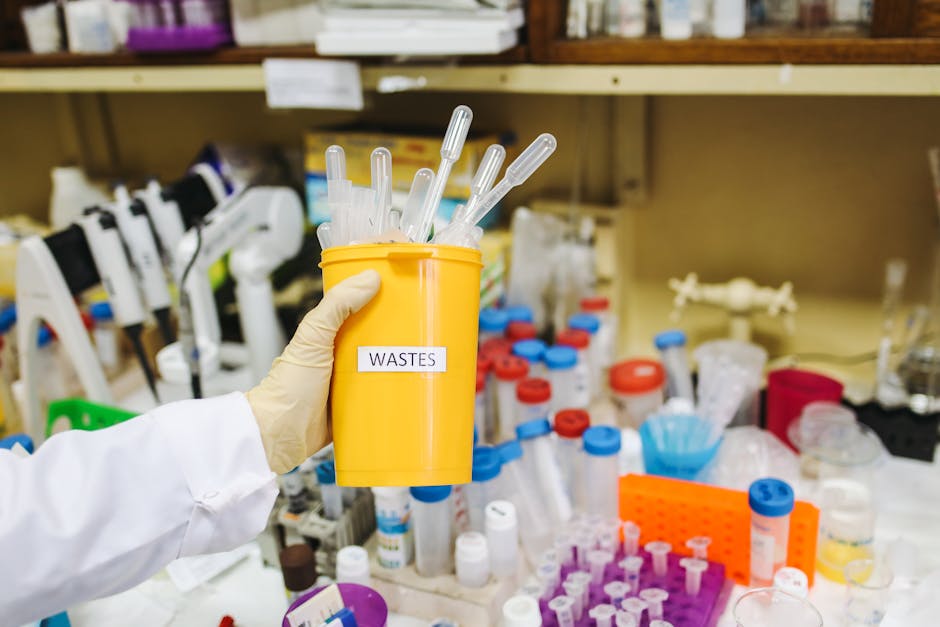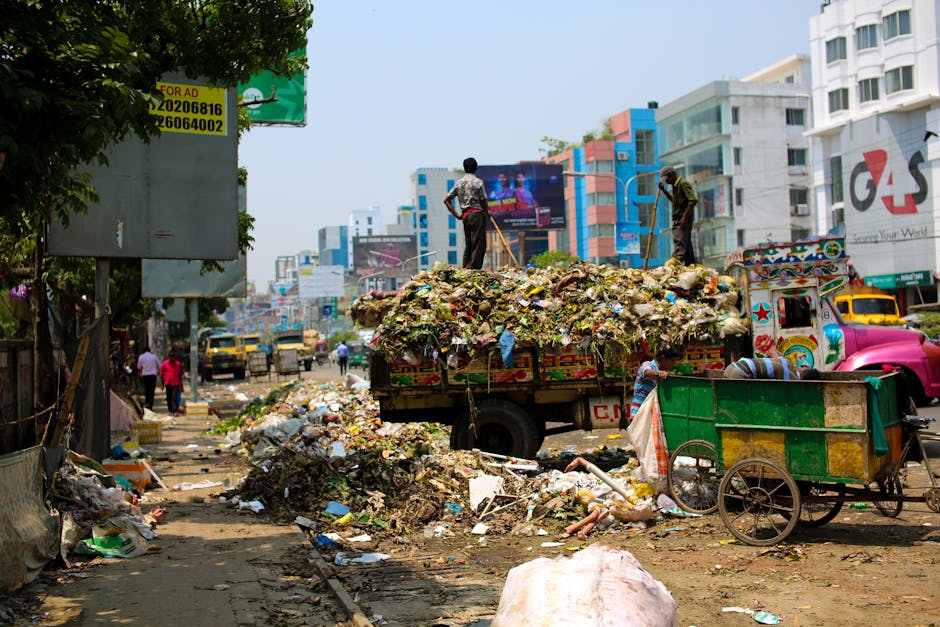The Science Behind Effective Waste Management
Did you know that the average person generates about 4.5 pounds of trash every day? It’s a staggering number, and it raises an important question: How can we manage all this waste effectively? In this article, well explore the science behind waste management and why it matters to you and the planet.
Why Does Waste Management Matter?

Waste management is not just about getting rid of trash. It impacts our health, environment, and economy. Poorly managed waste can lead to environmental disasters, like polluted water and air. It can also pose health risks, especially in urban areas.
Here are some reasons why effective waste management is crucial:
- Protects Health: Proper waste disposal helps prevent diseases.
- Conserves Resources: Recycling and composting can save raw materials.
- Reduces Pollution: It minimizes landfills and keeps our air and water clean.
- Supports the Economy: A good waste management system can create jobs.
What Are the Main Types of Waste?

Understanding waste helps in managing it better. Waste typically falls into several categories:
- Municipal Solid Waste: This is the everyday trash you find in your home. Think of food scraps, plastic bottles, and old furniture.
- Hazardous Waste: This includes toxic materials like batteries, chemicals, and electronic waste.
- Construction Waste: Generated from construction and renovation activities, including debris and unused materials.
- Industrial Waste: Produced by factories and production processes, often requiring special handling.
How Does Waste Get Managed Effectively?

Effective waste management involves several key steps:
1. Waste Prevention
The best way to handle waste is not to create it in the first place. This involves:
- Choosing products with less packaging.
- Buying in bulk to reduce waste.
- Using reusable bags and containers.
2. Waste Collection
Once waste is created, it needs to be collected efficiently. Garbage trucks and recycling bins play a vital role here. Municipalities often provide separate bins for recycling, compost, and trash to streamline sorting.
3. Waste Sorting
After collection, waste must be sorted into different categories. This helps determine the best way to process it. For example, recyclable materials can be sent to a facility where they are cleaned and processed into new products.
4. Recycling and Composting
Recycling converts waste into new materials, reducing the need for new resources. Composting, on the other hand, turns organic waste into nutrient-rich soil. Heres how each works:
- Recycling: Glass, paper, and certain plastics can be melted down or processed to create new items.
- Composting: Food scraps, yard waste, and paper can be combined to create compost, which enriches the soil.
5. Waste Disposal
Not all waste can be recycled or composted. Non-recyclable waste typically goes to landfills. However, modern landfills are designed to minimize environmental impact, utilizing liners and monitoring systems to prevent leaks.
What Role Does Technology Play?

Technology is a game-changer in waste management. Here are some examples:
- Smart Bins: Some cities use bins that can monitor how full they are and notify waste management services when they need to be emptied.
- Sorting Robots: Advanced robots can now help sort recyclables efficiently, reducing human error and increasing recycling rates.
- Waste-to-Energy Plants: These facilities convert non-recyclable waste into energy, providing a renewable source while reducing landfill use.
How Can You Contribute to Effective Waste Management?
Your daily choices matter! Here are simple actions you can take:
- Reduce: Use less. Opt for products with minimal packaging.
- Reuse: Before throwing something away, think of other ways to use it.
- Recycle: Learn your local recycling rules. Ensure you recycle correctly to avoid contamination.
What Are Common Misconceptions?
Many people have misconceptions about waste management. Here are a few:
- All plastics are recyclable: Not all types of plastic can be recycled. Check local guidelines.
- Landfills are safe: While modern landfills are designed to be safe, they still pose environmental risks if not managed properly.
- Recycling is the only solution: While important, recycling is just one part of the waste management puzzle.
What Are the Future Trends in Waste Management?
The future looks promising for waste management. Here are some trends to watch:
- Circular Economy: This concept focuses on reusing materials and reducing waste. Companies are adopting models that emphasize sustainability.
- Increased Public Awareness: More people are becoming aware of their waste impact, leading to proactive waste reduction efforts.
- Innovative Recycling Technologies: New methods and technologies are being developed to improve recycling rates and efficiency.
As we strive for a cleaner and more sustainable world, understanding waste management is critical. Every choice we make can contribute to a healthier planet.
Closing Thoughts: What Can You Do Today?
Effective waste management starts with you. By making small, conscious changes in your daily life, you can help protect the environment. Every little bit counts!
For more information on waste management practices, check out the Environmental Protection Agencys guidelines here.
Lets work together for a cleaner future!


